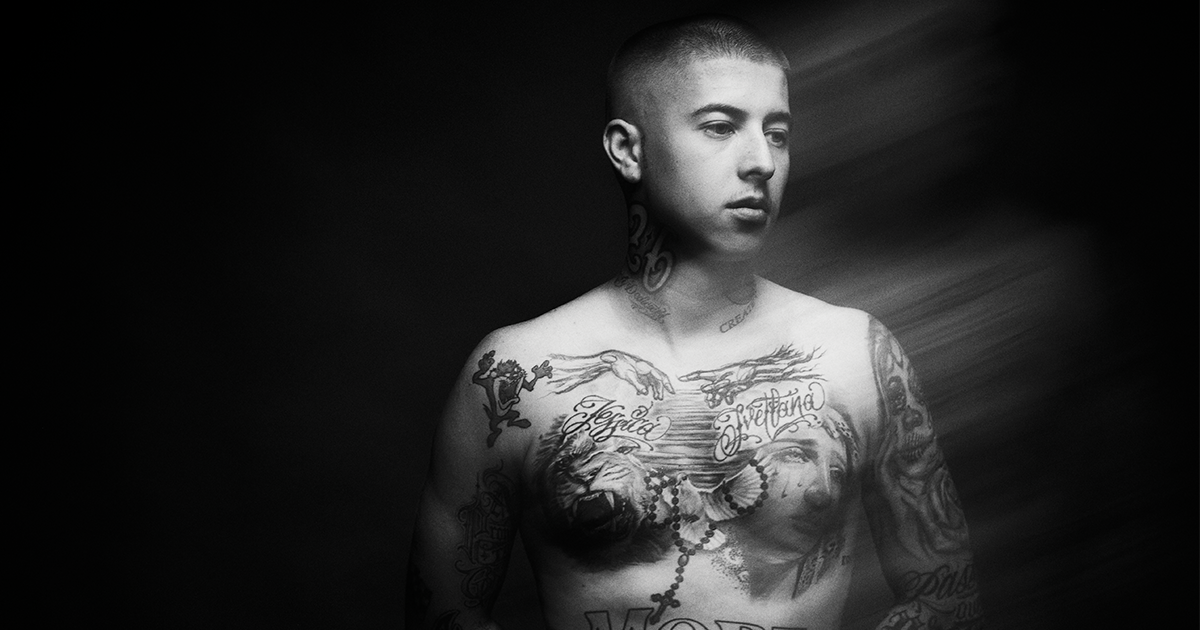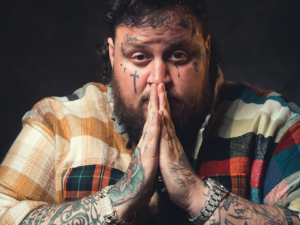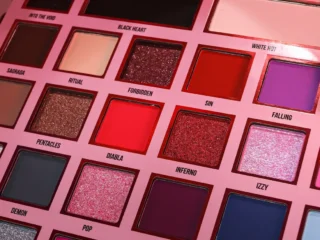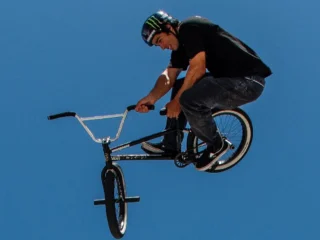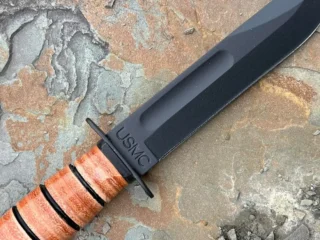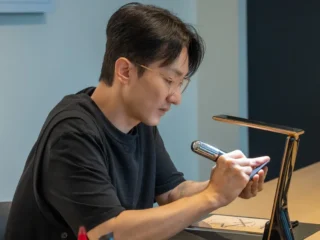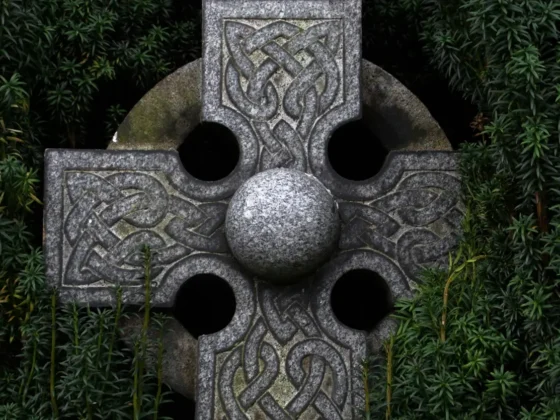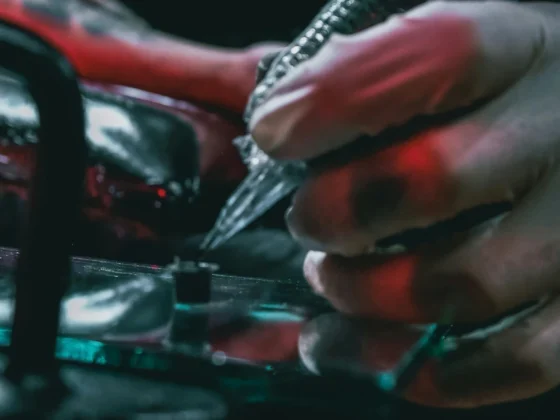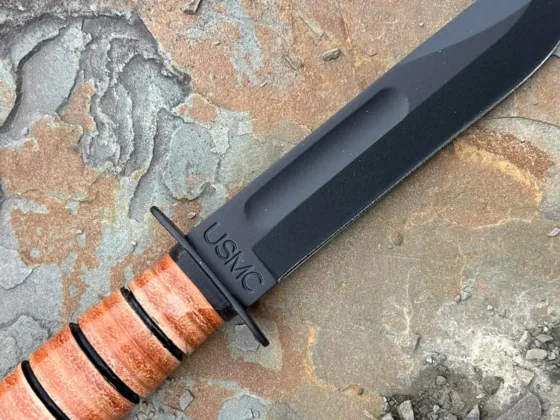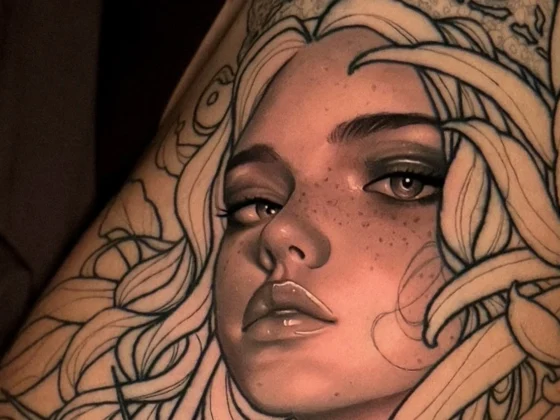Charlie Connell
February 1st, 2023
A Cut Above
Celebrated barber Vic Blends can charge whatever he wants for a haircut, but all he really wants in exchange is a conversation and human connection
Photos by Jason Goodrich
Home can be a tricky place. True to the idiom, home can be the place that will always be in your heart—the place you are most comfortable, where you can be your true self. But your hometown can also be a trap, especially for the ambitious. Victor Fontanez, known to the world as barber Vic Blends, loves his hometown of Fayetteville, North Carolina, to the point of having “2-6” tattooed on his neck, but he is also aware that getting the hell out was the best thing that ever happened to him.
“I love Fayetteville, I love it so much, but it’s a love/hate relationship,” he says. “You’ve got to understand that if you stay there, it’s like quicksand. You can’t make it out. I’ve seen that my whole life. Seeing people who have lived there for the last 40 years, they tell you you don’t need to change because they made it here and they’re alive. But they ain’t really living.
“I want to live, I want to see my dreams happen,” he continues. “I’ve got to be around people who are doing something. I’ve got million-dollar dreams in a city where nobody has ever seen them. What kind of mentorship am I going to find, what kind of opportunities am I going to get? So I packed my bags and went to Atlanta, Georgia.”
We don’t want to skip to the end, but given that we are interviewing Fontanez for a feature in Inked magazine at our studio in New York City, you already know he was able to achieve those dreams once he left town. And not to give another cliché too much credence, but in this case it really wasn’t the destination that mattered, it was the journey.
Fontanez may have been determined to get out of the fish bowl that was Fayetteville, but he wouldn’t have ever had those ambitions if it wasn’t for the community he was raised in. Specifically, the barber shops where he got so much more than a fresh cut.
“I grew up in a barber shop,” Fontanez says. “On weekends when we had nothing to do, we’d walk to the barber shop, some days not even needing a haircut. It was a place where you could be safe, surrounded by other men, get mentored, hear funny jokes, laugh, kick it, get a cut. That was the culture I grew up in, and to me, the barbers in my hometown were neighborhood heroes. When you think about what a barber does for their community it’s a lot more mental than it is a haircut. When you sit in somebody’s chair and you’re really able to be vulnerable and have a conversation, it means a lot. And I felt that.”

It was in a barber chair where Fontanez was given a small bit of advice that set him up for life. He was still in high school and looking ahead to college, but he was concerned about the astounding costs that come with going to school. He had a job at a restaurant but the pay wasn’t the best and he wouldn’t be able to keep it up while at school. He needed a side hustle. “You should learn to cut hair,” his barber told him, “And you’ll make money for the rest of your life.”
That was all Fontanez needed to hear. “How did that very first haircut look?” I ask. Fontanez glances at the group of friends sitting to the side of where we’re conducting the interview with a smile before answering. “This is my best friend here and he is the first person I ever cut in my life,” he says. So I turn to the friend and ask about the quality of the cut that launched the career of Vic Blends.
“It was a haircut,” he laughs.
“Yeah, we’ll say that,” Fontanez adds with a chuckle. “It was a haircut.”
Fontanez set up a barbershop in his mother’s garage, and throughout his senior year he styled anybody willing to put their trust in him. Cutting hair was never supposed to be anything more than a side hustle. The plan had been to charge folks five bucks for a dorm room haircut, earning a little spending cash to help ends meet. But this was no side hustle, it was his passion.
Fontanez put off going to school to give the barber life his all. It was a tough decision and one he put a lot of thought into. He knew how hard his parents had worked to give him the opportunity to go to college, but he was also aware that if he didn’t jump at the opportunity, it would pass him by. Breaking the news to his parents was far from easy.
“I learned that my parents loved me unconditionally,” Fontanez says about the experience. “When you’re a parent, you want to see your kids succeed. And as a kid, you want to go chase your dream and do it as big as possible. That can cause a lot of stress for a parent. It’s not that they didn’t want to see me chase my dreams, it’s that they didn’t want to see their son fail. I had to sit in their shoes and think, they had a life 10 times harder than me. They worked hard so I would have everything in front of me. For me not to take that, I’m putting the risk and pressure on myself.”
Fontanez took that leap of faith and went to Atlanta, knowing that while he had support at home, he didn’t exactly have a safety net. He had chosen this path and he needed to make it work. Things got off to an inauspicious start. After striking out on every apartment he visited—nobody wanted to rent to a kid with no credit history or local job yet—he saw a sign as he was on his way out of town. He’d have to rent the place sight unseen, but it was within his budget, so he signed his name. On the day he moved in he learned a hard lesson.
“My neighbor above me left their trash bag on the back deck and it was maggot-infested,” he recalls. “I woke up on my first day living alone and I had maggots all over the floor of my bedroom. I was sitting there, going through it, but I was so happy to be out of my hometown and to even be there. Don’t nobody have to know how I’m living, just know that I’m out here.”

Armed with the skills he had perfected working out of the garage and an understanding for how he should build a business gleaned from the hours he spent in the barber shop, Fontanez found success quickly in Atlanta. In no time he was the go-to barber for the thriving hip-hop scene, doing cuts in the studio and the green room for rap’s biggest games. But in March 2020 all of that was taken away in an instant by the pandemic.
The time in quarantine gave Fontanez time to look inward. His brain was racing as he kept turning over a quote he once heard—“Don’t let what you’re good at define who you are. If you do, who are you if you can’t do what you’re good at?”
He wanted to get back to basics and provide the service that made him fall in love with barbering in the first place. Not the haircuts, the human connection that comes when you’re sitting in his chair. So he went out one day with the tools of his trade, approached a stranger and said the words we’ve seen him ask in hundreds of videos posted to his social media in the two years since—“Can I bless you with a haircut?”
“I didn’t know how people would receive it, but I knew I was going out there with my heart first,” he says. “I went out there for a genuine interaction, to allow someone to have a service from me. When you lead with your heart like that, it don’t matter what reactions you’re going to get from people walking by who may think it’s weird stuff to be doing [in a park]. Me and the person I’m cutting are having a great interaction.”
What began as a way for Fontanez to reconnect with his trade during a time when he couldn’t work in the traditional sense became so much more. Not only have his videos of the cuts gone viral, but the barber has found that each and every experience enriches him on a personal level.
“It makes me feel fulfilled,” he says. “That’s the best way to put it. When I go home after we finish those cuts, I feel happy. I feel like I did what I was supposed to do.”
It’s easy to get lost in the hustle and determine success by the health of your bank account, but flashy cash has never been the motivator for Fontanez. It’s always been about replicating the magical feeling he has every time he sits down in a barber’s chair. It’s about building a safe space for people to be vulnerable. It’s about building connections and interacting with people you never would have encountered otherwise. You may think it’s all about how the cut looks at the end, but it’s not.
“Technical skills are probably the least important thing,” he explains. “A good haircut is a happy customer. If you make a person happy, you gave them a good haircut, regardless of what the haircut looked like. It’s not about the cut. That’s not why people sit in the chair all the time. You never know why somebody sits in your chair, so you gotta be ready to accept them.”
Words of wisdom like those are the reason Victor Fontanez kept going back to the barber shop, and it’s why people keep coming to sit in his chair.

Editor's Picks
Royal & The Serpent
The hilarious and talented musician talks mental health, music, tattoos and more
Son of a Sinner
From rough-and-tumble roots to mainstream stardom, this genre-crossing musician is on a roll
Building the Disney World of Hip-Hop
A conversation with Matt Zingler, co-founder of Rolling Loud, the largest hip-hop festival in the world

